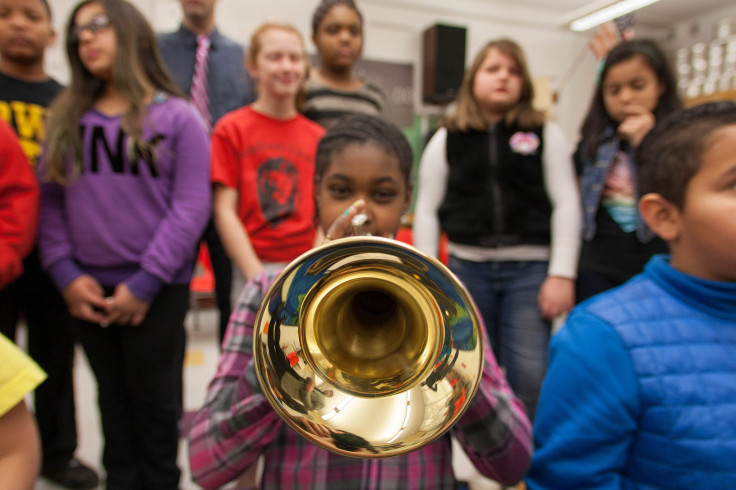Low-Income Kids Benefit From Music Class, Show Greater Reading Skills

Music classes are usually cut first when schools reevaluate their budget. But a new study from Northwestern University shows these classes are valuable, especially to low-income children.
Researchers cited low socioeconomic status affects a child’s reading abilities through a combination of their environment and reduced access to reading materials. This means they spend less time reading, which then means their reading fluency and vocabulary is inhibited. Since music and language skills stem from auditory processing, researchers decided to measure the impact music classes have on low-income children.
Forty-two children between the ages 6 and 9 were recruited from the waitlist of the Harmony Project, an organization that offers free music education to children from low-income communities. Children were then randomly placed in a music place or not, with none of the children having previously received music education and each having the same reading abilities. After a year, however, researchers noticed a difference.
The children taking a music class showed greater reading abilities in comparison to children not taking a music class. Researchers used a standardized literacy test to measure for reading fluency and speed, as well as a two-scale IQ test to measure their verbal and non-verbal IQ; children in music class showed modest, but significant improvement.
“We show that musically-trained children maintained their … level of reading ability after one year, whereas a matched control group's performance deteriorated over the same time period,” researchers explained. “While we did not see a positive improvement in reading ability in the trained group, we interpret the decline in age-normed reading scores in our passive control group as consistent with the expected negative trajectory of performance in a low-income population.”
Researchers added they interpreted these results to mean “auditory enrichment” offered in a music class may improve literacy skills and combat the otherwise negative impact of a low-income environment. What’s unique about music “is its ability to engage an individual on many levels, socially, emotionally, intellectually and creatively, promoting other aspects of development such as self-confidence and discipline.”
Prior studies, too, have shown the lack of music training has an effect on children’s literacy skills. Though it’s worth mentioning researchers consider the fact it’s not the music class, per se, helping low-income children, but more so the fact these types of classes and programs increase a child’s motivation to learn.
Source: Slater J, et al. Longitudinal Effects of Group Music Instruction on Literacy Skills in Low-Income Children. PLOS ONE. 2015.



























